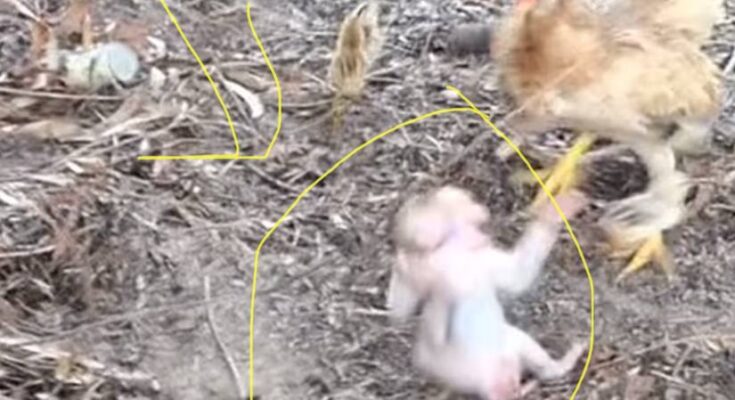In the quiet corners of the animal kingdom, tales of love, survival, and heartbreak unfold every day—often far from the eyes of the world. One such painful incident recently captured the attention of wildlife observers and netizens alike: a baby monkey, vulnerable and innocent, was severely bitten by its own mother. The sight was both tragic and puzzling, raising many questions about primate behavior, maternal instincts, and the harsh realities of life in the wild.
A Startling Scene in the Wild
The event reportedly occurred in a forested area where a troop of monkeys was observed by wildlife enthusiasts. The baby, only a few weeks old, was seen crying out in pain, clinging desperately to its injured side. Nearby, the mother showed signs of agitation and aggression. Witnesses were shocked to see her bite the infant repeatedly, leaving visible wounds. It was a distressing moment that shattered the common assumption that animal mothers are always gentle and protective toward their young.
Understanding the Behavior
To human eyes, such aggression may seem unthinkable, but experts in primate behavior say that this is not entirely unheard of. In the wild, maternal rejection or aggression can occur for various reasons:
- Health of the Infant: A sick or weak baby may be seen as a burden, especially in high-stress environments where resources are limited.
- Stress or Trauma: A mother under extreme stress—due to loss of habitat, competition, or human disturbance—may behave unpredictably.
- Social Hierarchy: In highly social species like monkeys, dominance and hierarchy often dictate behavior. A mother in a lower social rank may face pressure or even violence from other troop members, influencing how she treats her own offspring.
The Aftermath and Rescue Efforts
Thankfully, in this case, local wildlife rescuers intervened. The injured baby monkey was rescued, treated for its wounds, and is now under rehabilitation. While the physical injuries are healing, the emotional trauma may take longer to mend. Caregivers are providing specialized attention to help the baby regain trust and comfort.
This incident also raises concerns about the increasing pressures wild animals face due to shrinking habitats, human encroachment, and environmental changes—all of which can lead to abnormal behaviors in wildlife populations.
Raising Awareness and Compassion
Though deeply upsetting, stories like this are essential in helping people understand the complexities of animal behavior. They remind us that nature is not always gentle, and even maternal instincts can falter under the weight of stress and survival.
By supporting wildlife sanctuaries, respecting animal habitats, and advocating for conservation, we can help reduce the suffering of innocent creatures like this poor baby monkey. Let this heartbreaking incident be a call to look deeper into the lives of the animals we share this planet with—and to treat them with the compassion they deserve.



